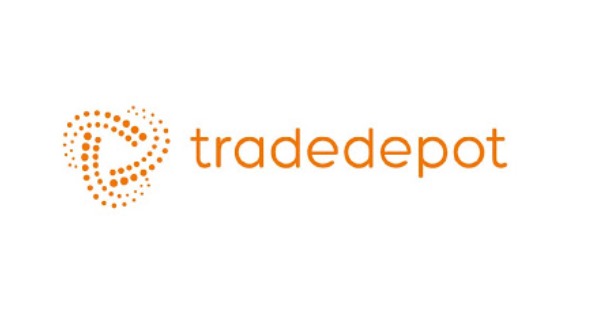E-Business
TradeDepot Raises $110 Million To Extend ‘Buy-Now-Pay-Later’ to Retailers Across Africa

TradeDepot, the leading B2B eCommerce and embedded finance platform in Africa, has raised $110 million in an equity and debt funding round to support the delivery of Buy-Now-Pay-Later services to 5 million SME retailers and drive further expansion of its merchant platform across the continent.

The Series B equity round was led by the International Finance Corporation (IFC) – a member of the World Bank Group, with participation from Novastar, Sahel Capital, CDC Group, Endeavor Catalyst and existing investors, Partech and MSA Capital. The debt funding was led by Arcadia Funds.
Africa’s SME retailers generate $1 trillion in sales annually and contribute $2.6 trillion to the continent’s nominal GDP, but a fragmented distribution network and lack of access to financing has led to inefficiencies in distribution and many missed opportunities across the value chain.
Via its ShopTopUp platform, TradeDepot offers a broad range of consumer goods to SME retailers within its network and provides credit lines to enable these retailers to access inventory and pay in installments as they sell on to their own customers.
The new funding will expedite the delivery of this service to more retailers, increasing penetration for consumer goods brands and driving prosperity in one of the continent’s most critical sectors.
With active operations in 12 cities across Nigeria, Ghana and South Africa, TradeDepot leverages its data, technology and robust logistics operations to connect retailers with suppliers and unlock financing to fund inventory purchases for retailers, enabling increased sales, higher margins and other value-added services for all parties.
Speaking about the new funding, Onyekachi Izukanne, CEO and co-founder of TradeDepot, said, “We remain super focused on making digital commerce and financing both accessible and affordable to neighbourhood retailers across key cities in Africa.
We are delighted to be joined by an elite group of new investors and have IFC’s Wale Ayeni and Brian Odhambo of Novastar joining our Board of Directors, to support us on this journey to drive growth and prosperity across the continent.”
TradeDepot has built a network of leading consumer goods brands and SME retailers across Africa, and created a proprietary risk scoring engine that uses retailers’ purchase history, previous repayment performance and other related data points to predict their creditworthiness.
This game-changing financing model coupled with industry-leading technology to support logistics operations has led to a 200 percent increase in transaction volumes for retail store owners.
“The informal sector is a large and critical part of Africa’s economy, accounting for around 80 per cent of jobs in the region,” said Makhtar Diop, IFC’s Managing Director. “We are excited to work with TradeDepot to leverage technology to help small businesses across the continent, particularly the many retailers led by women, access the resources they need to grow and scale.”
E-Business
Galaxy Backbone Celebrates the Federal Government’s Paperless Civil Service Milestone

Galaxy Backbone (GBB) aligns with and celebrates the successful announcement by the Office of the Head of the Civil Service of the Federation on the achievement of a Paperless Civil Service, a significant milestone in Nigeria’s public sector reform and digital transformation agenda.

The milestone was formally highlighted at a press briefing led by the Head of the Civil Service of the Federation, Mrs. Didi Esther Walson-Jack, who commended Galaxy Backbone for its sustained support and contribution throughout the implementation of the programme.
GBB has played a critical role in enabling this transition by providing secure, scalable, and shared digital infrastructure that supports the digitisation of government processes across Ministries, Departments and Agencies (MDAs). Through the 1Government Cloud, MDAs have been empowered to migrate from paper-based workflows to digital platforms, improving efficiency, collaboration, data security, and service delivery across the Federal Civil Service.
In addition, GovMail, GBB’s secure government email platform, has strengthened official communication, enhanced records management, and reinforced cybersecurity standards—key pillars in sustaining a paperless operating environment.
Galaxy Backbone acknowledges the collective efforts of the Office of the Head of the Civil Service of the Federation, Permanent Secretaries, Directors of ICT, consultants, partners, and dedicated public servants whose commitment and collaboration ensured the smooth delivery of this initiative.
The Managing Director/Chief Executive Officer of Galaxy Backbone, Prof. Ibrahim Adeyanju, was represented at the press briefing by Akintayo Bamisaye, Acting Group Head, Research, Digital Innovation and Skills Department (RDIS).
GBB describes the achievement as a strong close to 2025 and reaffirms its commitment to supporting the Federal Government in building a modern, efficient, and digitally enabled public service.
E-Business
Jumia CEO says Black Friday Signals Nigeria’s E-Commerce Maturity

At the close of 2025, Temidayo Ojo, the CEO of Jumia Nigeria, reflected on a year-end shopping season that points to the growing maturity of the country’s e-commerce market. “Black Friday is no longer a single, short-lived spike in activity,” he said.

“It has become a familiar, anticipated moment in the retail calendar, where consumers shop deliberately and with confidence.”
Preliminary KPIs for the two months ended November 30, 2025, show strong year-on-year growth in both orders and Gross Merchandise Value (GMV), with GMV growth outpacing order growth. This indicates that customers are placing fuller, more considered baskets rather than shopping in fragmented transactions. Nigeria ranked among Jumia Group’s better-performing markets, with engagement remaining steady throughout the Black Friday period rather than spiking briefly and tapering off.
A key factor behind this performance is the growing familiarity of consumers with online shopping. Customers are increasingly leveraging platform features such as saved carts, brand stores, and price comparison tools to plan purchases in advance. This trend suggests that digital commerce is becoming embedded in everyday habits rather than being viewed as a one-off event.
Ojo also highlighted the role of Jumia’s JForce network in connecting digital commerce to local communities. “Our agents are critical to ensuring that customers across Nigeria, including secondary cities and smaller communities, have access to variety, consistent pricing, and reliable delivery,” he said. “During peak periods like Black Friday, JForce agents can respond faster, serve more customers efficiently, and build stronger local relationships. This isn’t just a distribution channel—it’s a pathway to sustainable income and inclusion.”
Reflecting on the overall performance, the CEO concluded: “What we’re seeing this year-end is steady engagement across categories, stronger consumer confidence, and partners like our JForce agents benefiting from increased activity.
“It confirms that Nigeria’s e-commerce ecosystem is maturing, growing in a more structured and resilient way. As the December Holiday Sale continues, we expect these patterns of familiarity, trust, and participation to sustain momentum and drive both commerce and community impact across the country.”
E-Business
Galaxy Backbone Tops FG’s Website Performance Ranking

Galaxy Backbone Limited (GBB) has been ranked first overall in the 2025 Federal Government Website Performance Scorecard.

This is a landmark achievement for Nigeria’s digital economy.
The ranking, conducted by the Bureau of Public Service Reforms (BPSR), is the definitive benchmark for digital excellence and transparency across all Ministries, Departments, and Agencies (MDAs).
Professor Ibrahim Adepoju Adeyanju, managing director and CEO of Galaxy Backbone, received the award during a ceremony in Abuja.
He described the feat as a validation of the agency’s“Nigeria First”data sovereignty strategy and its relentless pursuit of service excellence.
This recognition comes as the Federal Government intensifies its push to achieve a fully paperless civil service by December 31, 2025.
GBB has been the primary architect of this transition through its 1Gov Enterprise Content Management (ECM) platform, which now hosts the operations of almost all federal MDAs.
The award adds to a growing list of accolades for Galaxy Backbone in 2025, following its recent win of the “International Standard Excellence Award for Best IT Service Provider.”
As the central hub for government shared services, GBB’s performance serves as a blueprint for other agencies currently undergoing digital transformation.
With its expanded fiber-optic backbone now covering over 13 states and its secure cloud solutions, Galaxy Backbone remains the cornerstone of Nigeria’s vision to become a leading digital nation by the end of the decade.

 Telecom3 days ago
Telecom3 days agoNnaemeka Ani – The Architect of ‘Code and Courage’

 E-Financial3 days ago
E-Financial3 days agoNigeria’s N58.18trn Budget and Rising Cost of Deficit Governance

 Telecom3 days ago
Telecom3 days agoMTN Nigeria Appreciates Partners, Customers at Lagos Prestige Experience

 Telecom2 days ago
Telecom2 days agoT2 Faces NCC Probe in Benue Over Major Service Outage in 9 LGAs

 Telecom2 days ago
Telecom2 days agoMTN Nigeria Crowns Ayo Benzi Winner of Next Afrobeats Star

 E-Business2 days ago
E-Business2 days agoJumia CEO says Black Friday Signals Nigeria’s E-Commerce Maturity

 Telecom2 days ago
Telecom2 days agoNCC Grants 45 Days for Telecoms Firms to Fix Unapproved Shareholding Changes

 Telecom2 days ago
Telecom2 days agoNCC Unveils Draft 5-Year Spectrum Roadmap, 60 GHz License-Exempt Guidelines to Boost Broadband, Innovation


























